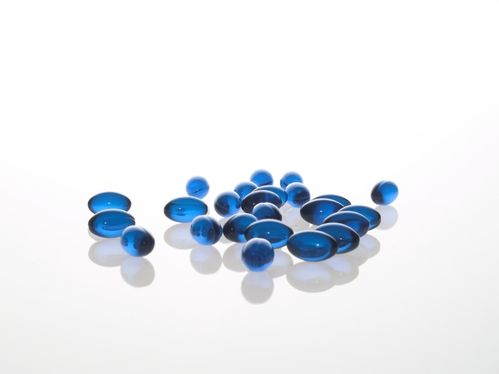Antioxidants - Not the saviors they are made out out to be

Antioxidants have been promoted as a cure for all that ails you.
Worried about cancer? Antioxidants will prevent it. Want to halt the ravages of aging? Antioxidants will put an end to that too or so the claims go. Health food and vitamin companies, TV doctors and others have extolled the benefits of antioxidants for years creating a healthy demand for products containing antioxidants, but are the people who take them healthier for doing so?
The theory that antioxidants could prevent cancer and slow aging was developed more than 50 years ago based on some sound chemistry principals and some basic laboratory science. In a test tube antioxidants can neutralize something called free radicals. Free radicals are chemicals that react with proteins and DNA and cause damage to them. Stop DNA damage and you could prevent cancer and aging was the idea. The theory sounded good and initial studies in mice seemed to lend additional support.
The human body is far more complex than a test tube however, and as is often the case, ideas that look good in the lab don’t always lead to similar results in real human beings. Over the past 40 years numerous studies have been done using antioxidants in people with conflicting results. Some seemed to show a beneficial effect while others showed the exact opposite, but a 2007 analysis looked at 47 of the best trials and came to the conclusion that antioxidants actually led to a 5% increase in the rate of early death.
One large double blinded study published in1996 looked at 18,000 smokers to see if Beta carotene could reduce the risk of lung cancer. Beta-carotene is an antioxidant vitamin (Vitamin A). The study had to be stopped when it was found after 18 months that the risk of lung cancers was 28 percent higher and deaths were 17 percent higher in the group taking Beta-carotene.
So why all the excitement about antioxidants in the media and the health food store? Sometimes an idea sounds so good that no one checks the facts. Sometimes they don’t care or don’t want to know. In addition the media likes catch words that people can remember. Scientific sounding words and catch phrases also sell products. The supplement and health food industry has found the use of this term to be very profitable.
What should you do as an informed consumer who wants to stay healthy? Avoid taking antioxidant vitamins in amounts above the recommended daily allowance. Don’t fall for phrases like “superfood” or “antioxidants” when shopping for you and your family. Stick with a healthy diet which is high in fruits and vegetables and limit red meat consumption. Exercise regularly and drink alcohol only in moderation. Remember there are no magic words or short cuts to good health.
The human body is far more complex than a test tube however, and as is often the case, ideas that look good in the lab don’t always lead to similar results in real human beings. Over the past 40 years numerous studies have been done using antioxidants in people with conflicting results. Some seemed to show a beneficial effect while others showed the exact opposite, but a 2007 analysis looked at 47 of the best trials and came to the conclusion that antioxidants actually led to a 5% increase in the rate of early death.
One large double blinded study published in1996 looked at 18,000 smokers to see if Beta carotene could reduce the risk of lung cancer. Beta-carotene is an antioxidant vitamin (Vitamin A). The study had to be stopped when it was found after 18 months that the risk of lung cancers was 28 percent higher and deaths were 17 percent higher in the group taking Beta-carotene.
So why all the excitement about antioxidants in the media and the health food store? Sometimes an idea sounds so good that no one checks the facts. Sometimes they don’t care or don’t want to know. In addition the media likes catch words that people can remember. Scientific sounding words and catch phrases also sell products. The supplement and health food industry has found the use of this term to be very profitable.
What should you do as an informed consumer who wants to stay healthy? Avoid taking antioxidant vitamins in amounts above the recommended daily allowance. Don’t fall for phrases like “superfood” or “antioxidants” when shopping for you and your family. Stick with a healthy diet which is high in fruits and vegetables and limit red meat consumption. Exercise regularly and drink alcohol only in moderation. Remember there are no magic words or short cuts to good health.
Recent
Are You Really Allergic to Penicillin? The Truth Might Surprise You
January 19th, 2025
Understanding Homeopathy: A Critical Look
October 25th, 2024
HPV Vaccines - Fact and Fiction
July 5th, 2024
Ear Pressure Problems: Navigating Eustachian Tube Dysfunction
June 24th, 2024
Carotid Doppler/Ultrasound Tests: Who should have this test done?
June 19th, 2024
Archive
2024
May
Ozempic - Obesity cure or panacea?GMO's (Genetically Modified Organisms) - Are they truly "Frankenfoods" or our best hope for feeding a hungry world?The Drip Dilemma: Why Healthy People Should Steer Clear of IV TherapyLung Cancer Screening - Is it time to get a CT scan?The Whole Truth Behind Whole Body MRI Scans – Overhyped, Overpriced, and Overrated!Understanding Sinus Infections: Beyond the Common ColdAbdominal Aortic Aneurysms: What You Need to Know
June
2014
March
May
2013
July
August
October
November
Omega 3's (Fish Oil and Flax Seed Oil) who should take them?How do you save a life ? - Just swab your cheekNew Cholesterol Guidelines - What's changed and what does it mean for you?Antibiotics and Probiotics- Why you shouldn't take either without a good reasonPreventing Heart Disease with almonds- Is this study Nuts?